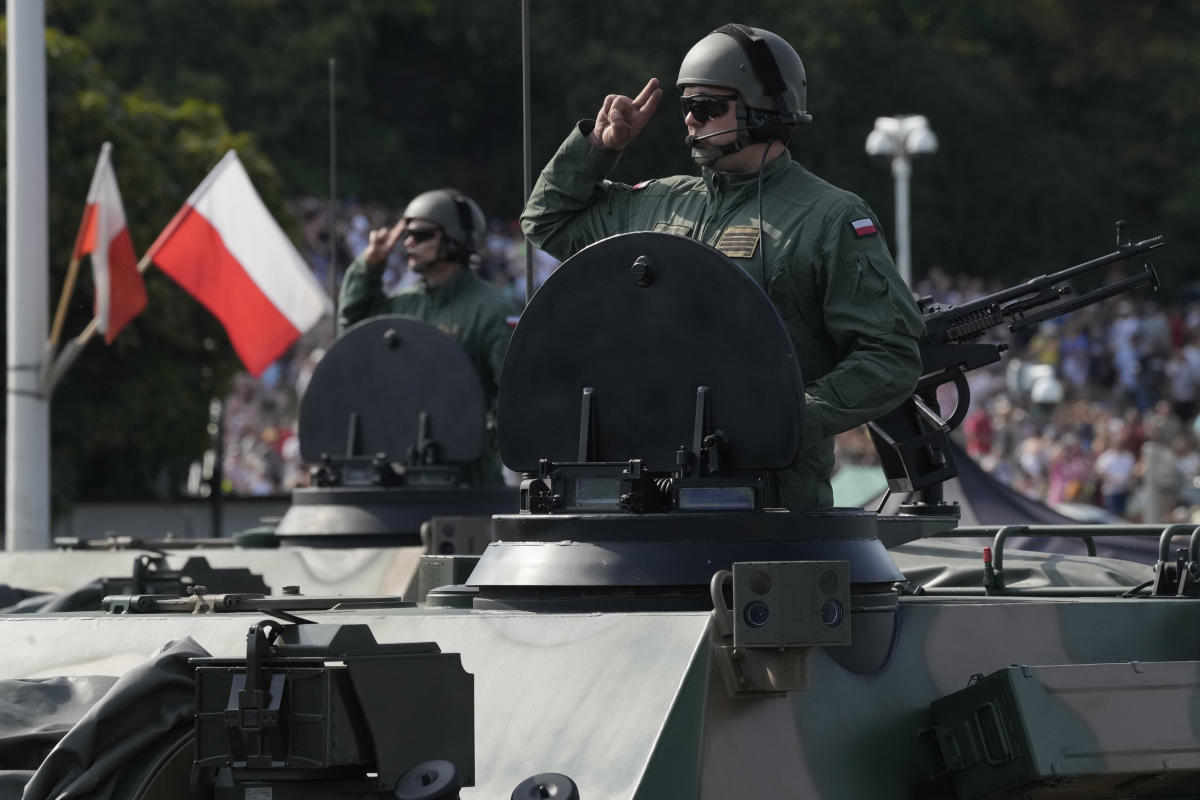
HELSINKI (AP) — NATO members Estonia, Latvia, Lithuania and Poland will seek European Union funding to build a network of bunkers, barriers, distribution lines and military warehouses along their borders with Russia and Belarus, Estonia’s officials said Saturday.
The three Baltic countries initially announced the plan for a “Baltic Defense Line” in January. In May, Poland announced a similar project called the “Eastern Shield” with a purpose to strengthen its borders with the Russian exclave of Kaliningrad and Belarus.
“The need for a (Baltic) defense line stems from the security situation and supports NATO’s new forward defense concept,” Estonian Defense Minister Hanno Pevkur said in a statement, adding that “it is extremely important to coordinate our activities with Poland.”
“At the same time, it strengthens the security of the European Union and the military defense of its borders, which is why we clearly see that the EU could also financially support the project,” he said.
The defense ministers of the four European countries located on NATO’s eastern flank met in the southeastern Latvian city of Daugavpils on Friday to discuss the project’s funding.
They didn’t specify how much financial aid Estonia, Latvia, Lithuania and Poland would be seeking for the project from Brussels but noted in a joint statement that “Russia’s war against Ukraine has shown that creating physical obstacles on an open ground with no natural defensive cover is paramount even in technologically advanced warfare.”
The ministers said that external threats at the Baltic-Polish frontier are increasingly growing and ramping up fortifications along the border with Russia and Belarus “remains a high-priority contributing to our pledge to defend every inch of (NATO) territory.”
In Estonia, the smallest of the four countries with a population 1.3 million, the establishment of the border defense line is planned in three stages starting in 2025, the Defense Ministry said.
Officials in Tallinn said earlier this year that Estonia is to construct up to 600 bunkers along its 333-kilometer (207-mile) border with Russia in the coming years at an estimated cost of 60 million euros ($67 million). The project is likely, however, to face difficulties and delays because the bunkers will have to be built on private land.
The Baltic-Polish defense line excludes coastal defenses on the Baltic Sea that is shared by the four countries. No mines, barbed wire, anti-tank weapons or other such devices would be deployed in peacetime along the border fortifications, according to Estonia’s defense officials.
EMEA Tribune is not involved in this news article, it is taken from our partners and or from the News Agencies. Copyright and Credit go to the News Agencies, email news@emeatribune.com Follow our WhatsApp verified Channel




